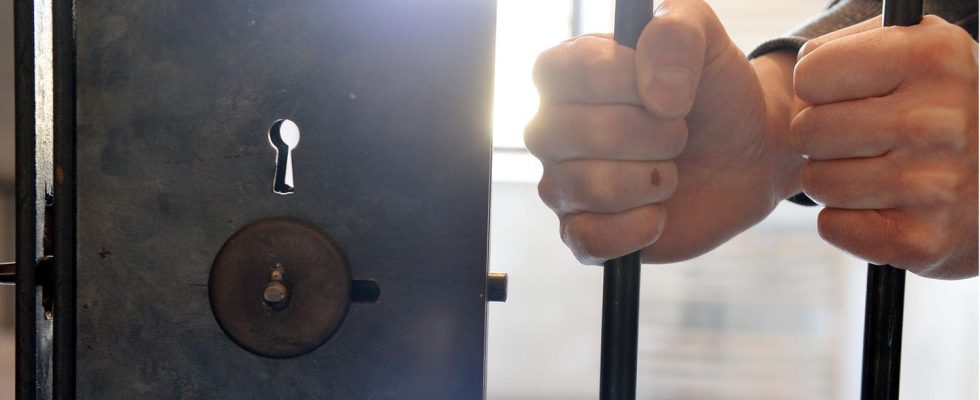new deportation regulations
Report: Britain wants rid of Albanian prisoners – and pays them money if they go
According to a media report, Great Britain wants to make it palatable for prisoners to return to their homeland (symbol image)
© Frank May / Picture Alliance
Britain wants to deport foreign prisoners in return for early release from prison. According to a media report, those affected even receive money for their return home. The government in London has made a new deportation arrangement with Albania.
Great Britain not only wants to tighten its asylum law and take stricter action against illegal migration, but the island state also wants to make it palatable for foreign prisoners to be deported to their home countries. If they agree, they will be released from prison before serving their minimum sentence and may even receive financial incentives, the BBC reports.
Britain and Albania signed a joint cooperation agreement last December to “deter and disrupt illegal migration,” allowing for the deportation of Albanian detainees. Since then, the number of deportations has increased. According to the UK Home Office, more than 1,000 people have been turned back – half of whom were rejected asylum seekers or foreign offenders. Albanian police confirmed that most of those deported from Britain this year were convicted criminals.
Detainees may get £1,500 for deportation
A 30-year-old Albanian man who has been sentenced to six years in prison in the UK for drug-related offenses and wished to remain anonymous told the BBC that he had been released for deportation after serving two years in prison – a year before he might have been granted parole. “They asked to go back [nach Albanien] leave or stay in the UK. They told us that if you go back, they will deduct a year from your sentence,” he is quoted as saying.
The man, who goes by the name Mark in the report, is said to have received a payment of £1,500 for his agreed deportation under the Facilitated Return Scheme. This amount is said to have been paid to other victims as well.
Sunak: “Thousands of Albanians will return to their homeland.”
The deportation regulation applies to foreign prisoners of all nationalities. A British government document states that “they [die ausländischen Gefangenen] cooperate with the deportation and waive their right to appeal”.
However, the law does not provide for forfeiture of the portion of the sentence not served. Should deported detainees return to the UK, they will have to serve out the portion of their sentences they have not served. This is intended to prevent affected persons from entering the country again.
The “Daily Mail” had previously reported at the end of December that 50 Albanian prisoners had agreed to be deported to their home country in January. According to the report, they would leave the country voluntarily. The new deportation scheme should save millions of pounds in British taxpayer money and free up space in overburdened prisons, it said. The newspaper quoted British Prime Minister Rishi Sunak as saying: “Thousands of Albanians will return to their homes in the coming months.”
Great Britain tightens migration policy
Great Britain has a strict migration policy. After the number of migrants in the country, most of whom came across the English Channel on small boats, had risen sharply in recent years, the House of Commons in London voted by a majority at the end of April in favor of a bill on illegal migration. This provides for the immediate detention of immigrants and the deportation of them to Rwanda soon thereafter. There should be no right to asylum. The bill is not fixed yet; the House of Lords has yet to approve it.
Prime Minister Sunak said in a statement on Monday: “We must do more to work together across borders and jurisdictions to end illegal migration and stop the boats.”
Among the migrants registered in 2022, almost a third came from Albania. She is drawn to Great Britain because of the professional prospects. Albania’s Interior Minister Bledar Çuçi said that in addition to fighting illegal immigration, the governments in London and Tirana must also find legal routes for Albanian citizens to enter the UK.
Migrants from Central and South America
“We pray to God”: Pictures of the desperate situation of asylum seekers on the southern border of the USA
As the BBC reports, a request to the British Home Office on the subject remained without a concrete answer. The broadcaster wanted to know how many Albanian citizens had been deported to their home country since the beginning of last year and how many of them were motivated to return by financial incentives. Answer: The Ministry does not publish corresponding statistics.
Sources: BBC, Daily Mailwith material from the dpa


